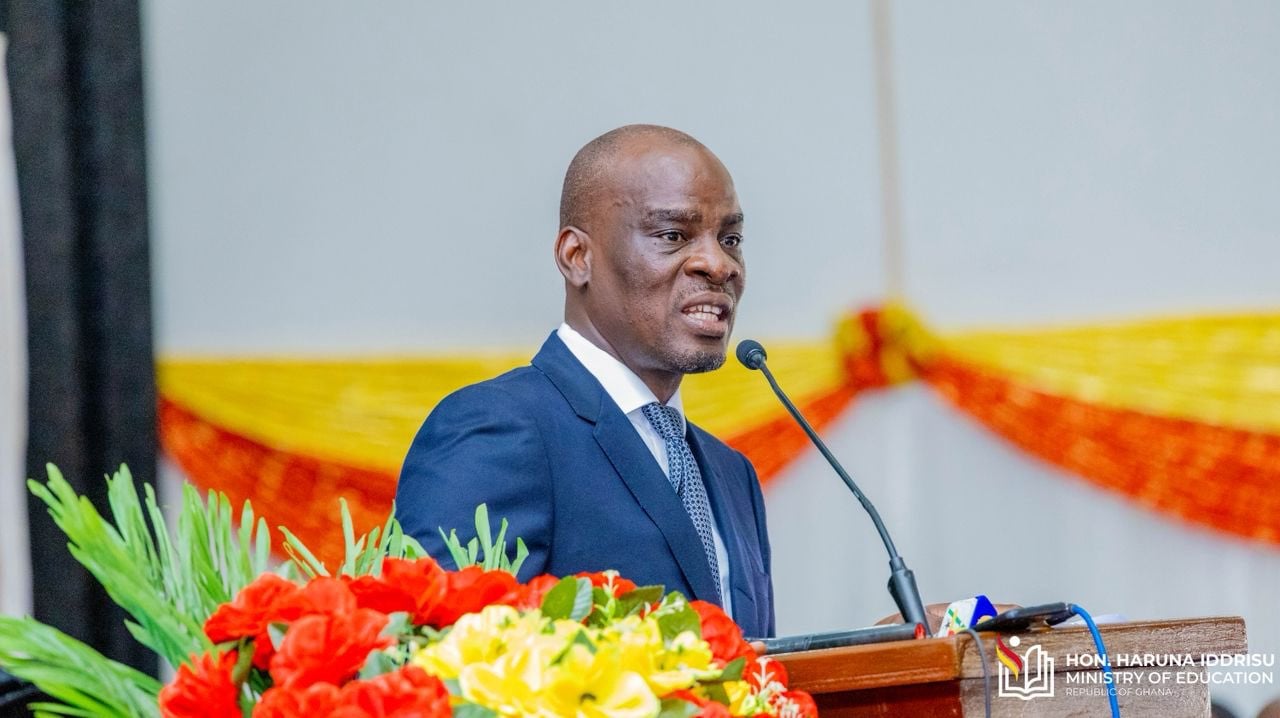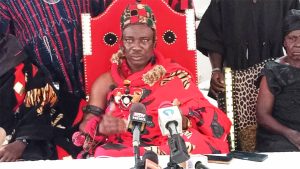
By Scofray Nana Yaw Yeboah, MCC, FInstCM
Leadership and executive functions emphasise command-control, productivity-reward, and performance metrics (ways of doing). In this BANI era, which is causing management and C-suites to face burnout at an alarming rate and cost, executive leadership coaching and other support systems become innovative, integrative interventions to enhance effectiveness, efficiency, and well-being.
Over the past three years, research by expert organisations has shown that corporate burnout worldwide incurs a cost of around $9 trillion. Worklike, in July 2025, reported $9.6 trillion. Five Flow also noted $8.9 trillion in June of this year, and Gallup published a figure of $8.8 trillion for 2023. These figures are highly challenging and continue to rise but present significant opportunities through coaching.
These statistics make a vital case for investing in executive leadership and team coaching for every corporate entity. The ROI of coaching should not be seen as a temporary or remedial measure. Culture, which comprises the fluidity or climate of systemic mindset, behaviour, and attitude, will undermine strategy if leaders and management do not invest in the necessary mindshift to foster growth in a fragile, anxious, non-linear, and unpredictable global business environment.
These unprecedented organisational challenges demand genuine agility, emotional intelligence, and collaborative leadership. The traditional training approach, which relies solely on cognitive or knowledge transfer, has fallen short in this BANI era because this environment engages all three brains (head, heart, gut), the autonomic nervous system, pelvic intelligence, and ecological considerations.
Gerald Olivero, Denise Bane & Richard Kopelman, Public Personnel Management, submitted that organisational training alone experiences a 22% increase in productivity, but when combined with coaching, that figure rises to 88%.
This reinforces the impact of a transformationally designed and facilitated corporate training and mentorship, strategically underpinned by executive leadership and team coaching, as an integrative and innovative intervention that enhances and influences leadership capabilities, capacity, competence, well-being, and team effectiveness.
Executive leadership and team coaching represent a highly valuable investment, with the return on investment, as reported by Matrix Global LLC in 2022, reaching 592% in a case study for a Fortune 500 company.
A global survey by PricewaterhouseCoopers states that “companies investing in coaching achieved a mean ROI of 7 times the initial investment. The International Coaching Federation (ICF) reports a 70% increase in individual performance, a 50% increase in team performance, etc. This highlights coaching’s effectiveness in enhancing leadership performance and driving organisational success.
Coaching is an integrative, innovative intervention because it is a supportive approach that brings a leader’s life into a 360-degree shift and transformation. It integrates all phases and sectors of an individual’s life to unlock their collective potential, covering parenting, marriage, family, academic, career, and other areas to support growth. A question in transitional dynamics relates to relationships, team impact, and personal life purpose. In an ontological sense, a person’s way of being is the subconscious that drives their actions and influences results and outcomes.
Coaching provides executives with the vulnerability, psychological safety, and trust in the process necessary to master effective decision-making. In coaching, especially in a climate where burnout and stress are increasing—characterised by deregulation of emotional states—decisions need to be made not just through thinking but holistically with body, mind, and soul. In mbraining, it is said that the three brains (head, heart, and gut) come into coherence and alignment, playing a crucial role.
The pursuit of authentic leadership is increasing, signifying a shift from a command-and-control style to a compassionate, creative, and courageous approach. Coaching is viewed as innovative because it enables the whole person to play a vital role.
According to the HeartMath Institute, coherence promotes a heart rate variability that serves as a foundation for creativity with purpose, direction, and a human-centred focus. The neurons in all three (3) brains fire together with coordinated effort, yet with meaning through what the neuroscientist calls neuroplasticity. Neurons that work together fire together, as an expert states.
The former CEO of General Electric, Jack Welch, made a valuable investment in executive coaching, which resulted in a significant increase in productivity and a 2,000% rise in stock market value. Microsoft recently entered the Guinness World Records as the organisation that invested heavily in the leadership of 4,816 individuals, conducting 13,704 coaching sessions across 80 countries over a year through EZRA Coaching.
This initiative led to a 30% reduction in attrition, a 70% increase in internal mobility, a 14% rise in career confidence, a 98% average satisfaction rating for EZRA coaches out of 294 ICF-accredited coaches, and a 51% increase in employees articulating their goals.
Systemic team coaching acts as a powerful intervention to foster a clear team climate that encourages collaborative co-creation and enhances holistic human beingness. The heart brain, which has relational affect as one of its primary functions, leads in coaching. Coaching supports human beingness, which AI cannot do.
The heart has an electromagnetic field that coaching can amplify to regulate and anchor emotional intelligence, bonding, trust, and support systems. This is why in elite military teams like the Marines and SEALS, cognition is not the first priority for team bonding.
Coaching fosters a mindset where individual purposes are aligned with the company’s vision, mission, and purpose to inspire a sense of collective ownership. This rewires their neurology and psychophysiology to go the extra mile for collective outcomes that impact performance, productivity, growth, and well-being.
When employees find allyship and a sense of belonging within a team, they are motivated to seek satisfaction and achievement. This also encourages collective accountability and responsibility, which then acts as a pivot to enable each department, team, and group to express their unique identity and ‘personality” while supporting the overall corporate identity and brand positioning.
Coaching takes an exploratory approach to bring out the best in team challenges across both horizontal and vertical axes. Through coaching, the interconnectedness and relatedness, as well as the intersections between teams, departments, and special-purpose units, are fostered to achieve fluidity while still embodying the collective goals of the entire organisation.
The human resources department of Royal Dutch Shell EVP shared that, following a successful team project involving 6 Team Conditions, there was a shared language and measurable impact across the business.
Cisco, one of the world’s leading giants in technology, through their “Leadership Breakthrough” project, featured team coaching, powerfully recorded 91% of participants scoring the programme as a worthwhile investment, participants-led team engagement increased by 73% and 15.3% performance improvement.
According to Harvard Business Review and Henley Business School, system team coaching stimulates a practical sense of psychological safety and cross-boundary collaboration that become essential repeatable competencies and capabilities.
The world is focused on the artificial intelligence (AI) revolution. Coaching is also exploring, expanding, and deepening adaptive intelligence (AI), which involves integrating our five neural networks (the head, heart, gut, autonomic nervous system, and pelvis) as part of our evolution.
Today, neuroscience has demonstrated how profoundly coaching can influence us. It is one of the ancient methods used to inspire growth, transformation, performance, well-being, and more, which has evolved into a career or profession to support the rapid pace of change in our world.
In terms of ROI, coaching is establishing a benchmark for its achievements across many other fields, emphasising the fluidity of its impact throughout all human pursuits. Corporate entities are encouraged to invest in the innovative integrative interventions, executive leadership and team coaching, which is tried and tested to offer holistic wellbeing, growth and development.
Scofray Nana Yaw Yeboah, MCC, FInstCM
Transformational Executive Coach |mBIT Master Coach | mBIT Trainer | Lead Consultant and Trainer – Zoweh Global Consult
Email: Scofray @gmail.com | Website: www.coachscofray.com | Cell: 233 243 085 932
The post Executive & Leadership Coaching: An innovative, integrative intervention for leadership and team effectiveness, efficiency and well-being appeared first on The Business & Financial Times.
Read Full Story









Facebook
Twitter
Pinterest
Instagram
Google+
YouTube
LinkedIn
RSS